Although my mission had been officially complete once I turned him over to the funeral director at the Billings airport, it was his placement at his grave that really concluded it in my mind. Now, he was home to stay and I suddenly felt at once sad, relieved, and useless.
The chaplain said some words that I couldn’t hear and two Marines removed the flag from the casket and slowly folded it for presentation to his mother. When the ceremony was over, Chance’s father placed a ribbon from his service in Vietnam on Chance’s casket. His mother approached the casket and took something from her blouse and put it on the casket. I later saw that it was the flight attendant’s crucifix. Eventually friends of Chance’s moved closer to the grave. A young man put a can of Copenhagen on the casket and many others left flowers.
Finally, we all went back to the gym for a reception. There was enough food to feed the entire population for a few days. In one corner of the gym there was a table set up with lots of pictures of Chance and some of his sports awards. People were continually approaching me and the other Marines to thank us for our service. Almost all of them had some story to tell about their connection to the military. About an hour into the reception, I had the impression that every man in Wyoming had, at one time or another, been in the service.
It seemed like every time I saw Chance’s mom she was hugging a different well wisher. As time passed, I began to hear people laughing. We were starting to heal.
After a few hours at the gym, I went back to the hotel to change out of my dress blues. The local VFW post had invited everyone over to “celebrate Chance’s life.” The Post was on the other end of town from my hotel and the drive took less than two minutes. The crowd was somewhat smaller than what had been at the gym but the Post was packed.
Marines were playing pool at the two tables near the entrance and most of the VFW members were at the bar or around the tables in the bar area. The largest room in the Post was a banquet/dinning/dancing area and it was now called “The Chance Phelps Room.” Above the entry were two items: a large portrait of Chance in his dress blues and the Eagle, Globe, & Anchor. In one corner of the room there was another memorial to Chance. There were candles burning around another picture of him in his blues. On the table surrounding his photo were his Purple Heart citation and his Purple Heart medal. There was also a framed copy of an excerpt from the Congressional Record. This was an elegant tribute to Chance Phelps delivered on the floor of the United States House of Representatives by Congressman Scott McInnis of Colorado. Above it all was a television that was playing a photo montage of Chance’s life from small boy to proud Marine.
I did not buy a drink that night. As had been happening all day, indeed all week, people were thanking me for my service and for bringing Chance home. Now, in addition to words and handshakes, they were thanking me with beer. I fell in with the men who had handled the horses and horse-drawn carriage. I learned that they had worked through the night to groom and prepare the horses for Chance’s last ride. They were all very grateful that they were able to contribute.
After a while we all gathered in the Chance Phelps room for the formal dedication. The Post commander told us of how Chance had been so looking forward to becoming a Life Member of the VFW. Now, in the Chance Phelps Room of the Dubois, Wyoming post, he would be an eternal member. We all raised our beers and the Chance Phelps room was christened.
Later, as I was walking toward the pool tables, a Staff Sergeant from the Reserve unit in Salt Lake grabbed me and said, “Sir, you gotta hear this.” There were two other Marines with him and he told the younger one, a Lance Corporal, to tell me his story. The Staff Sergeant said the Lance Corporal was normally too shy and modest to tell it but now he’d had enough beer to overcome his usual tendencies.
As the Lance Corporal started to talk, an older man joined our circle. He wore a baseball cap that indicated he had been with the 1st Marine Division in Korea. Earlier in the evening he had told me about one of his former commanding officers; a Colonel Puller.
So, there I was, standing in a circle with three Marines recently returned from fighting with the 1st Marine Division in Iraq and one not so recently returned from fighting with the 1st Marine Division in Korea. I, who had fought with the 1st Marine Division in Kuwait, was about to gain a new insight into our Corps.
The young Lance Corporal began to tell us his story. At that moment, in this circle of current and former Marines, the differences in our ages and ranks dissipated—we were all simply Marines.
His squad had been on a patrol through a city street. They had taken small arms fire and had literally dodged an RPG round that sailed between two Marines. At one point they received fire from behind a wall and had neutralized the sniper with a SMAW round. The back blast of the SMAW, however, kicked up a substantial rock that hammered the Lance Corporal in the thigh; only missing his groin because he had reflexively turned his body sideways at the shot.
Their squad had suffered some wounded and was receiving more sniper fire when suddenly he was hit in the head by an AK-47 round. I was stunned as he told us how he felt like a baseball bat had been slammed into his head. He had spun around and fell unconscious. When he came to, he had a severe scalp wound but his Kevlar helmet had saved his life. He continued with his unit for a few days before realizing he was suffering the effects of a severe concussion.
As I stood there in the circle with the old man and the other Marines, the Staff Sergeant finished the story. He told of how this Lance Corporal had begged and pleaded with the Battalion surgeon to let him stay with his unit. In the end, the doctor said there was just no way—he had suffered a severe and traumatic head wound and would have to be med’evaced.
The Marine Corps is a special fraternity. There are moments when we are reminded of this. Interestingly, those moments don’t always happen at awards ceremonies or in dress blues at Birthday Balls. I have found, rather, that they occur at unexpected times and places: next to a loaded moving van at Camp Lejeune’s base housing, in a dirty CP tent in northern Saudi Arabia, and in a smoky VFW post in western Wyoming.
After the story was done, the Lance Corporal stepped over to the old man, put his arm over the man’s shoulder and told him that he, the Korean War vet, was his hero. The two of them stood there with their arms over each other’s shoulders and we were all silent for a moment. When they let go, I told the Lance Corporal that there were recruits down on the yellow footprints tonight that would soon be learning his story.
I was finished drinking beer and telling stories. I found Chance’s father and shook his hand one more time. Chance’s mom had already left and I deeply regretted not being able to tell her goodbye.
I left Dubois in the morning before sunrise for my long drive back to Billings. It had been my honor to take Chance Phelps to his final post. Now he was on the high ground overlooking his town.
I miss him.
Regards,
LtCol Strobl
Subscribe to:
Post Comments (Atom)
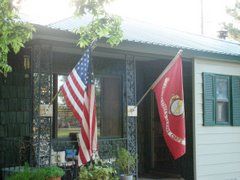
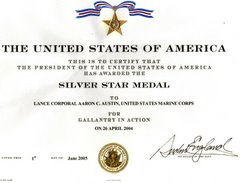
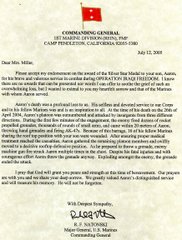
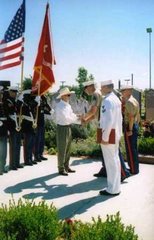


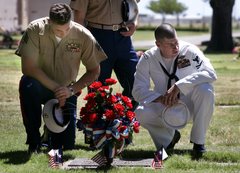

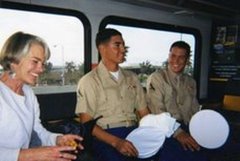

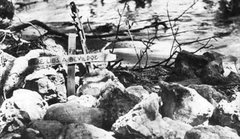


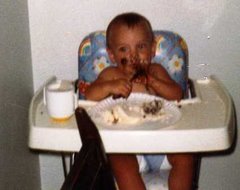

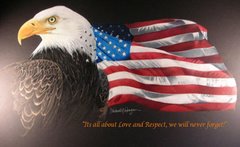
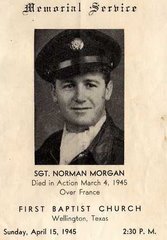
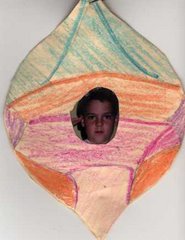

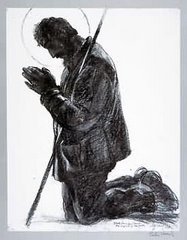
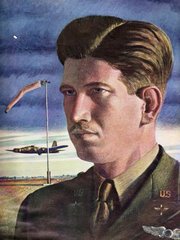
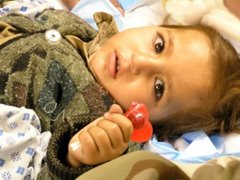
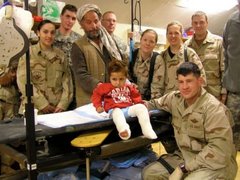
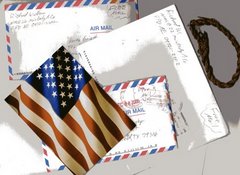

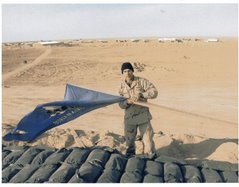


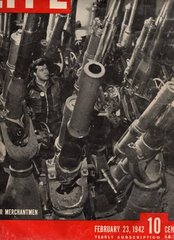
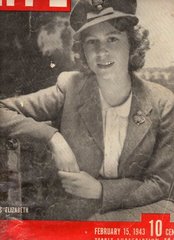

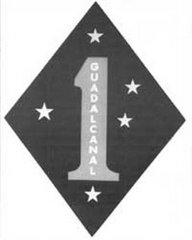
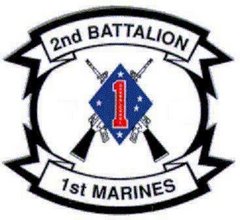


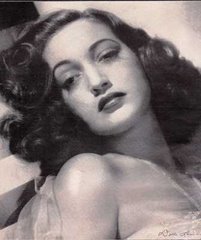

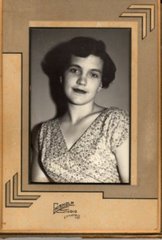

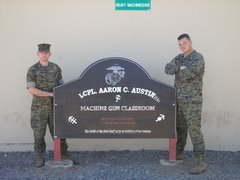

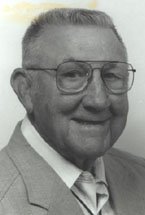

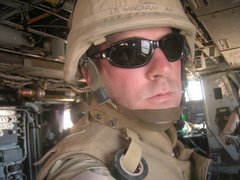
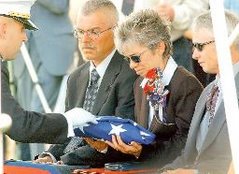


5 comments:
Thank you for sharing Lt. Col. Strobl's telling of taking PFC Chance Phelps home.
Only in a smaller community is there that sense of togetherness that we who are in larger cities so seldom see expressed; which is most sad.
CNN ran this piece last year, but it's even more moving, De'on, reading the Col.'s words. The Casualty Officers have the most difficult job of all, that remains with them as long as any combat tour. As well, no one will ever make me believe that Marines don't cry. They have the biggest hearts and most sensitive souls. One has only to read their words to know this is a fact.
I am so grateful to, and proud of, all your Marines for...well, carrying on are the only words which come to mind, and even that seems so little to offer. They ask for nothing and deserve all our love and respect; which they have from this quarter.
God Bless, and, if it isn't too painful for you, may I say that I feel your son is proud to know that you are keeping them all in our daily lives with your writings.
Veritas et Fidelis Semper
Thank you, it means a lot that you'd say that. Don't ever worry about mentioning Aaron. I do this for him and for us. For those left behind. I'm so grateful for my family and Aaron's Marine brothers that join me here. It means so very much to me. This is the good that came out of a bad thing. The blogging, I mean. Ramos brought this into my life; I didn't even know what it was. So God does bring the good out of the bad.
To me, to be able to share Aaron, to share in something with those he knew and loved as a Marine, to write, to read and get to know others through their blogs, it's just the best.
I have so much. Really. Wow.
That was incredible! I can't even think of any appropriate words to write...I am truly moved!
If only the rest of our country could have as much respect for our troops as the crew members and flight attendants in this amazing story.
Marines are a rare breed that never cease to amaze me! I am thankful to have a Marine for a grandfather, husband and so many wonderful friends! There is a bond that connects us all that is indescribable and unbreakable! I am blessed beyond words!
I have not heard this story before. I'm so glad you posted it. I'm crying (sheesh...once again), but I'm also heartened by the way my fellow Americans stood with LtCol Strobl in bringing Chance home.
Thank you for all your comments. I agree/understand/and cry with all of you. But like you all, I am proud of our citizens! And our Marines. A Marine is with a Marine's body until he is buried.
Every time we walked in, they stood to attention.
They were beautiful.
The next story coming up for this series is quite a bit tougher.
Post a Comment